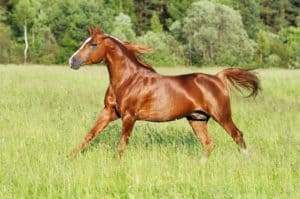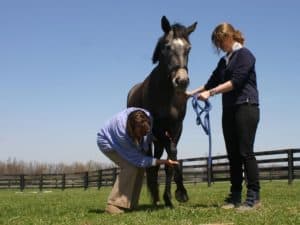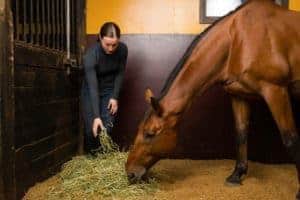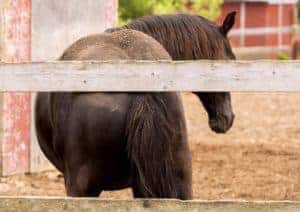
Solving the Equine Asthma Riddle
Correct diagnosis of equine asthma is crucial to finding a treatment that works for your horse.
Horse-health-problem risk factors, prevention, diagnosis, and treatment

Correct diagnosis of equine asthma is crucial to finding a treatment that works for your horse.

Discover how two experts identify and treat skin problems in horses. Sponsored by Kinetic Vet.

Veterinarians must consider certain factors when performing diagnostics to identify the source of respiratory disease.

Learn more about this respiratory disease and how it affects adult horses housed on pasture in hot, humid climates.

Here’s what you can do to help your allergy-prone horse prepare for the onslaught of seasonal allergens.

Learn how allergies happen, how they affect your horse’s body, and how to avoid or treat them.

Summer sores can worsen rapidly without prompt treatment. Find out how to prevent these lesions and explore methods veterinarians use to address them.

Learn how to recognize summer sores in horses and what your veterinarian might do to make a definitive diagnosis.

Follow the steps in this visual guide to relieve your horse’s clinical signs of insect bite hypersensitivity and prevent future flare-ups. Sponsored by Kinetic Vet.

Explore the methods used to diagnose food-related issues in horses and effectively manage their clinical signs.

Discover how one veterinarian treated a particularly challenging case of this common equine skin condition in The Horse‘s Spring 2024 issue.

An equine nutritionist answers a reader question about how her horse’s diet might play a role in his poor coat quality and hair loss.

Experts share feeding, grooming, and bathing tips to keep your horse’s hair coat gleaming.

Gait-altering conditions such as EPM, wobbler syndrome, and Lyme disease can be tricky to spot and even more difficult to diagnose.

What should and shouldn’t horses with heaves (or equine asthma) eat? A nutritionist offers advice.

Do you have a horse with flaky skin and a dry mane and tail? The right feed might help.
Stay on top of the most recent Horse Health news with
© 2022 Copyright Statement dolor sit amet, consetetur sadipscing User Terms, sed diam nonumy eirmod tempor invidunt ut labore et dolore magna aliquyam erat, sed diam voluptua. At vero eos et accusam et justo duo dolores et ea rebum. Stet clita kasd gubergren, no sea takimata sanctus est Lorem ipsum dolor sit amet.
"*" indicates required fields